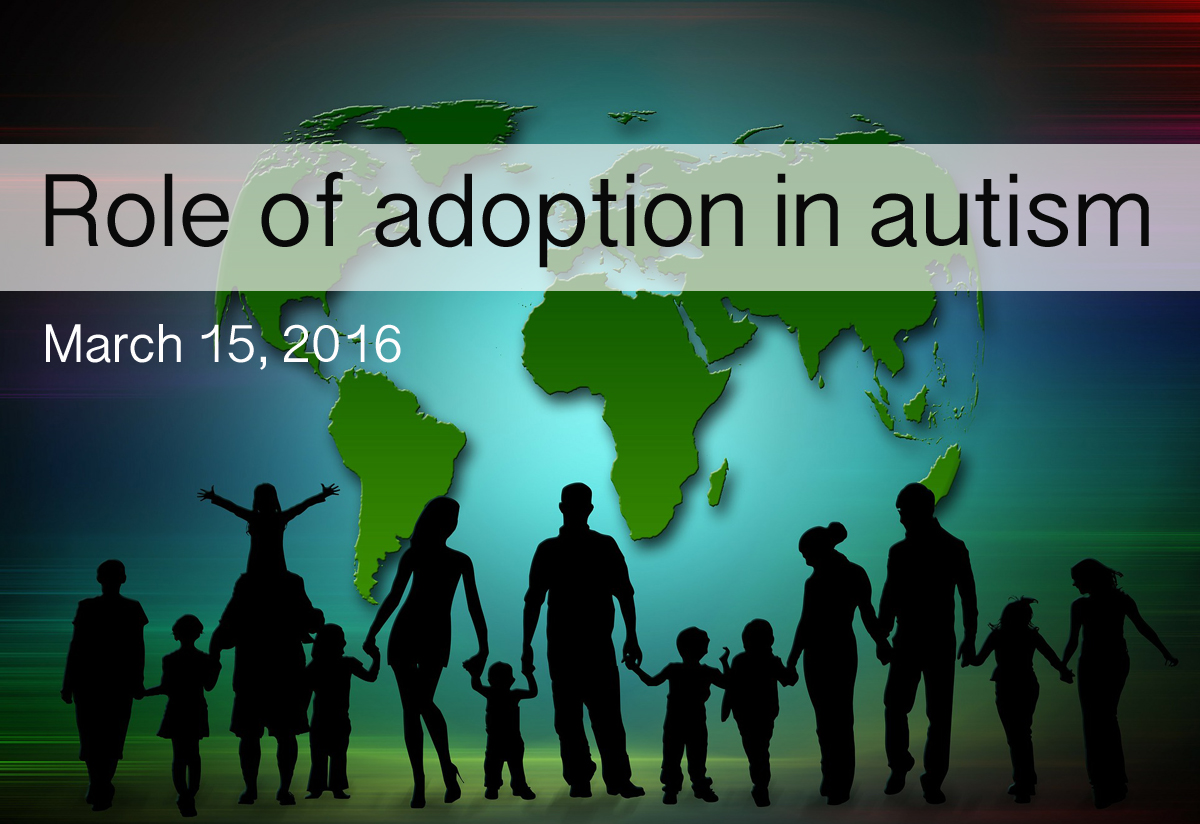Check out other stories from the Latest News
Diagnosis Differences in Adopted Population with ASD
By Shana R. Spindler, Ph.D. on March 15, 2016

Background: Previous studies have linked adoption to general neurodevelopmental risks, but little is known about adoption as a risk factor for Autism Spectrum Disorder (ASD) specifically.
What’s new: In the February 2016 issue of the journal Pediatrics, researchers published a study exploring the differences in ASD diagnosis between adopted and non-adopted individuals. Using data in the Autism Speaks Autism Treatment Network, the researchers analyzed the cognitive ability, diagnosis, behavioral problems, and sleep habits for 163 adopted children and 5624 non-adopted children on the spectrum. They found that adopted children had increased:
- Attention problems
- Attention Deficit/Hyperactivity Disorder diagnosis
- Use of psychotropic medications
- Anxiety
- Depression
- Sleep problems
- Use of sleep medications
Why it’s important: This is the largest study of adopted individuals with autism to date. These results highlight the need for additional research in this unique subgroup, with a focus on factors associated with adoption—such as birth parent history, age at time of adoption, and history of institutionalization.
Help me understand :
| Source(s) : |
| Tweet |

